Heatwave: Inside the boiling pot of inequality

It's impossible not to feel the heat these days. Even if you are riding this out in the comfort of privilege, you must surely know your country is in the throes of one of the worst heatwaves in decades. The nation has been sizzling as the mercury rises, breaking old records over the last few weeks. Even our memes – the internet's conduit for the latest cultural conversation – are hot on the heels of "THE BIG HEATWAVE OF 2023."
All conversations start with an acknowledgment of the overwhelming heat: "I wore my lightest outfit to survive this heat"; "I showered three times today, but then water has run out in our building"; "We have one AC in our house, but I worry about using it because I cannot cope with the bills, and I have recently started sharing the electricity bill with my parents"; "I came to work because there is at least AC here… in my house, the walls are hot, the floor is hot, and water is in short supply; there really is no way out."
The pages of our newspapers and the hourly news on TVs and radios are all highlighting different angles of the heatwave. A photograph published in this daily captured rows of devotees lying around the floor of the national mosque, reluctant to leave the premises even after the afternoon prayers ended. Owing to the heatwave, the Bangladesh Railway authorities asked trains to lower their speed, nearly halving it from the usual. This is because the temperature of railway tracks is always higher than the general environment, and there is a possibility of accidents due to melting or expansion of the tracks due to extreme temperature. Health experts have recommended that children and older people stay home, and have also requested people to stay safe from heat strokes. The jail authorities, too, have taken measures to ensure that inmates are protected from the heatwave.
But here is something else to consider: do we all feel this heat similarly? The answer is obviously no. It is no secret that if you are among the well-off in this not-so-well-off nation, you are better equipped to deal with this heatwave. There is a deep running inequality as to how the heat affects people. If you have a car fitted with a powerful air conditioner, if you work in a swanky office with central cooling, then it is likely that you also live in an accommodation fitted with an AC – in essence protecting you from the wrath of this wretched heat. Imagine having to take the bus, or having to ply a rickshaw, or operating a roadside stall in this ominous, oppressive heat that you know "really feels" like 50 degrees.
This year, Dhaka has experienced its hottest day in 58 years. Extreme weather events have become the norm owing to climate change. And yet again, it is putting the disparities between the rich and poor under a magnifying glass. The city's well-off (the numbered few) have been riding out the heatwave blissfully hunkered down in their cool homes, offices, cars and shopping malls.
If you are a slave to statistics, then let me apprise you on some harrowing data. Human-induced climate change is exacerbating the likelihood of extreme events, one of which is heatwave. Climate change also means hotter and longer heatwaves. And who is most affected by these intensified heatwaves? Poorer nations – nations that have had very little contribution towards climate change in the first place. A report published in the journal Science Advances last year confirmed this matter: periods of extreme heat cost the global economy about $16 trillion between 1992 and 2013. But while the richest countries lost about 1.5 percent of their annual per capita GDPs dealing with heatwaves, poorer countries lost about 6.7 percent of their annual per capita GDPs. Another report published early last year said the lower-income population around the world faced a 40 percent higher exposure to heatwaves than people with higher incomes. Do you see the tragedy? The cost of extreme heat from climate change is disproportionately borne by those least culpable.
There is more. Dhaka and other major cities in Bangladesh are especially ill-equipped to deal with this rising temperature. Rapid and unplanned urbanisation, coupled with extreme population density and the loss of water bodies and open natural spaces, compounds the effects of the heat. Where will a tired rickshaw puller take respite when there is no shade from the old ficus tree anymore? It's not like the rich will allow them to walk into a shopping mall and let them breathe in the cool conditioned air, will they?
A study published in the PNAS journal has found that Dhaka is among the worst-affected by urban heat in the world. Research has confirmed that many areas in Dhaka, Chattogram, and Khulna are turning into "urban heat islands." When cities replace natural land cover with dense concentrations of pavement, buildings, and other surfaces that absorb and retain heat, they end up creating "urban heat islands." This in turn increases energy costs, air pollution levels (God knows Dhaka does not need any more of that), heat-related illnesses, and mortality. Do you see the vicious cycle we are stuck in?
To fight this, we need global action. Wealthy countries, the ones disproportionately responsible for the climate crisis, have a double responsibility: cut emissions at home, and support the developing nations with the costs of replanting crops, rebuilding homes after storms, and moving from dirty energy to cleaner, lower-carbon ones. We need national actions to combat the effects of climate change: implementation of the National Adaptation Plan (NAP) as well as the Mujib Climate Prosperity Plan (MCPP), and increased investment in climate-resilient infrastructure, emissions mitigation, protection of the remaining water bodies, and decentralisation of our cities.
There are no two ways but to improve our cities to better fit the current weather patterns. In the interim, the authorities need to help people cope. Localised solutions for immediate relief have borne fruit in other countries. Why can't Dhaka try and implement some of those? The solutions include bringing back trees, allowing those remaining to flourish, reclaiming wetlands and water bodies, painting roofs white especially in cramped housing where heat gets trapped easily, placing water dispensers across the city, incentivising rooftop gardens, and lastly, for immediate relief, allowing more people to benefit from the cooling systems in the existing structures.
Abida Rahman Chowdhury is a member of the editorial team at The Daily Star with interests in wildlife and biodiversity conservation.

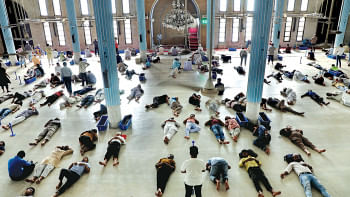
 For all latest news, follow The Daily Star's Google News channel.
For all latest news, follow The Daily Star's Google News channel. 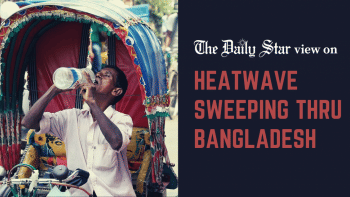
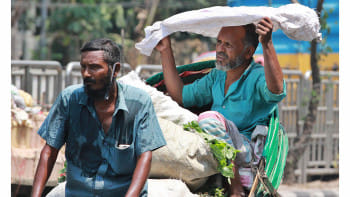
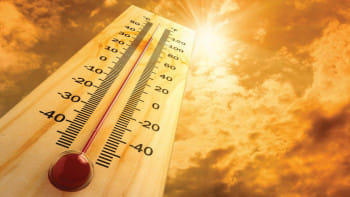



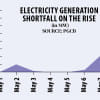
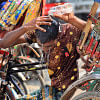


Comments